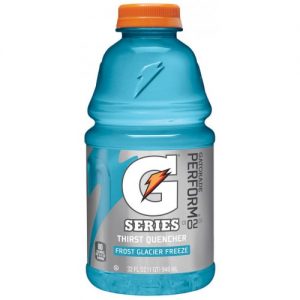Hydration during running is not complicated.
When you run, you sweat. The more you sweat, the more your blood volume decreases. The more your blood volume decreases, the harder your heart has to work to deliver oxygen to your working muscles.
Sounds dangerous, but it’s really not. Runners almost never experience dehydration levels sufficient to cause major health consequences. But normal levels of dehydration will make you feel uncomfortable and cause you to slow down.
Drinking while you run will limit these negative effects of dehydration. But what should you drink, how much, and when?
In the past, athletes were encouraged to drink as much as possible during exercise, or at least to drink enough to completely offset dehydration (that is, to drink enough to prevent any decrease in body weight during exercise). However, it is now understood that this is bad advice, for two reasons.
RELATED: Hydration: The Key To Successful Performance
Firstly, it is possible to drink too much during exercise. Forcing yourself to swallow more fluid than your body really needs while running may cause gastrointestinal distress, and in extreme cases it can cause a dangerous condition known as water intoxication, or hyponatremia. Secondly, research has shown that drinking to completely offset sweating offers no advantage with respect to performance or body temperature regulation compared to drinking by thirst.
The new exercise hydration advice is in fact to drink according to your thirst. As long as you keep an adequate supply of a palatable drink accessible during your runs, you will naturally drink enough to optimize your performance if you just drink as often and as much as your thirst dictates.
Dehydration only affects performance in workouts lasting longer than an hour, so you don’t have to drink during workouts that are shorter than an hour. However, you can if you like.
Plain water is adequate, but sports drinks offer a couple of advantages. Specifically, sports drinks replace some of the sodium and other minerals that your body loses in sweat along with water. In addition, sports drinks provide an extra energy source for your working muscles in the form of carbohydrates. Research has shown that sports drinks enhance performance significantly more than plain water in high-intensity and long-duration runs and races.
RELATED: Sports Drinks Vs. Water
Since you do not seek to test your performance limits in most of your runs, it is not necessary to use a sports drink every time you lace up your shoes. Go ahead and use plain water in your easier runs and save the sports drink for your faster and longer workouts.
Remember: Drink when you’re thirsty














